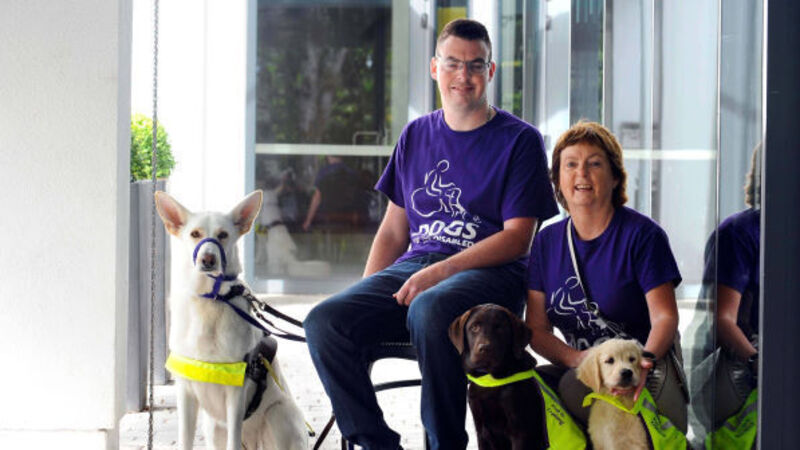Charities seek update to laws concerning 'assistance dogs'

With the same breed, age, and temperament of guide dogs, assistance dogs are trained to aid certain children.
The umbrella group Irish Assistance Dogs want special recognition for assistance dogs enshrined in legislation so parents of children with autism and other disabilities can take their dogs with them when they go to the cinema, restaurant, and other public places.










